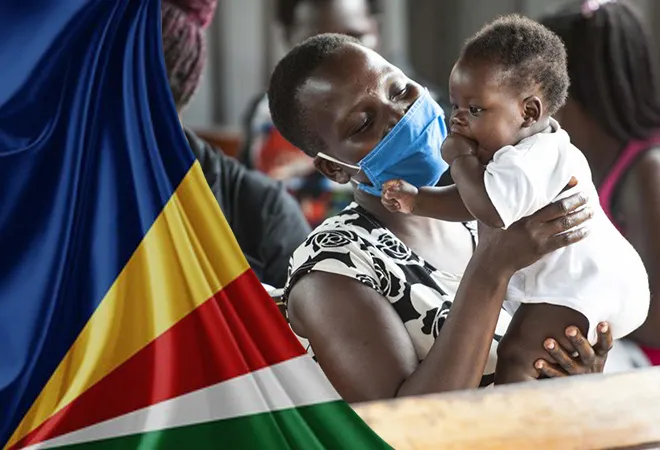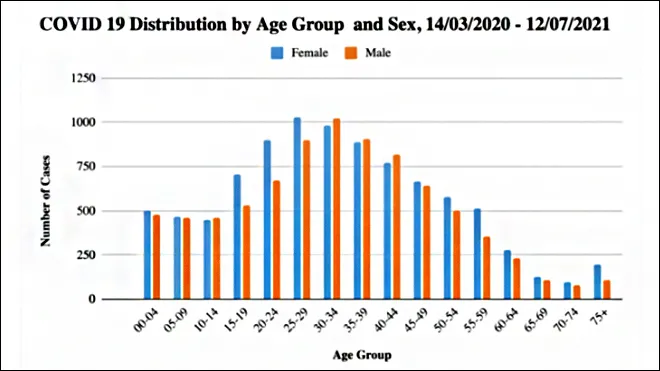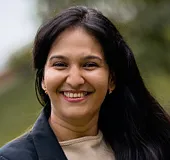
This article is part of the series Children and the Pandemic: An Analysis Across Countries
Since the very start of the COVID-19 pandemic, children around the world have experienced a startling new reality. Almost every key milestone of childhood has seen a devastating rollback, in line with global increases in childhood poverty, abuse, and exploitation. With approximately 22 percent of its total population below the age of 15, Seychelles is striving to provide for its future generations as it grapples with the impacts of COVID-19.
Health
Seychelles enjoys a universal healthcare system, with most of the population living within easy access of a healthcare facility. In 2020, non-communicable diseases, cardiovascular diseases, and cancer were the prime causes of morbidity and mortality. The pandemic disrupted the health system, causing the Ministry of Health to pull resources away from routine and specialised services, ultimately leading to a fall in utilisation as well as accessibility to healthcare services. However, essential coverage of key services such as childhood immunisation and prenatal care was maintained, leading to a reduction in neonatal, infant, and under-five mortality rates that year. Life expectancy at birth also increased in 2020, largely due to a reduction in external causes of mortality, such as accidents, injuries, and the like, in young people, possibly caused by restrictions on movements imposed to prevent the spread of COVID-19.
 Source: Ministry of Health, Seychelles
Source: Ministry of Health, Seychelles
As of 13 September 2021, Seychelles recorded 20,748 total cases of COVID-19, with 535 active cases and 110 deaths. Children do not form a part of the major age groups that have been significantly affected by the virus; so far, the elderly have accounted for the majority of deaths. The government is rolling out a Pfizer vaccination campaign for children aged 12–17 years with the aim to reduce the spread of COVID-19 in schools.
Education
Seychelles provides free national education and is a recognised UNESCO Category II Centre for Early Childhood Care and Education. A lockdown last year resulted in the closure of schools and the disruption of learning ever since. Although online teaching was encouraged, many schools lack the infrastructure and resources to fully invest in digital learning models. Moreover, children in poorer households may not always have access to sustained internet connections for extended learning sessions.
Seychelles provides free national education and is a recognised UNESCO Category II Centre for Early Childhood Care and Education.
Given these challenges, state schools have officially re-opened since March 2021, but infections have continued to cause disruptions, therefore, the reopening of schools has been executed in a way where students are attending classes on alternate weeks, thus, reducing student density and minimising transmission.
Despite this, the country logged a significant improvement in academic performance in the International Cambridge (IGCSE) results in 2020 as compared to 2019. While budget constraints brought on by the pandemic forced 53 students to defer their higher studies in 2020, the government recently stated students will once again depart overseas for their university education. As the sole tertiary education provider, the University of Seychelles took the opportunity to launch a post-graduation course in Education programme, inviting new graduates and those who lost their jobs during the pandemic to re-skill and enter the teaching profession.
Social care
Child protection services have weakened globally as a result of the control measures imposed to stem COVID-19’s transmission rates, resulting in increased risks of abuse against children. The pandemic hampered Seychelles’ Social Services, yet the agency continued providing visits for crisis cases and maintained the Children’s Help Line. In 2020, 527 cases of four types of abuse—namely neglect, sexual, physical, and emotional abuse—were logged as compared to 406 in 2019. The National Council for Children (NCC) also saw a reduction in the number of children supported by therapists in 2020, possibly due to the cancellation of face-to-face sessions. It is unclear if these figures can be attributed to reasons such as the pandemic, better reporting mechanisms, under-reporting or more prosecutions in the preceding year, as no formal research has yet taken place.
Encouragingly, new legislation to address these realities has been proposed, including the introduction of a range of new offences stemming from harassment, grooming, rape to offences involving the use of intimate images and sexual communication with children through virtual platforms.
As the sole tertiary education provider, the University of Seychelles took the opportunity to launch a post-graduation course in Education programme, inviting new graduates and those who lost their jobs during the pandemic to re-skill and enter the teaching profession.
Other concerns
Seychelles acceded to the Convention of the Rights of the Child in 1990, but the pandemic has exposed its children to greater risk of sexual exploitation, drug trafficking, and child labour.
Combined factors of decreased physical activity, unbalanced nutrition, and school closures may also have resulted in unhealthy weight gain in children during the pandemic. The Seychelles government declared rising obesity amongst schoolchildren a public health emergency, revealing that the prevalence of obesity in children has increased steadily since 1998, reaching 36 percent in girls and 28 percent in boys in 2019.
Studies have found children born during the pandemic scored lower on the standard measurement and ability tests, with reduced interactions and less outdoor activity deemed to be the likely culprits. Prior to the pandemic, Seychelles recorded around two to six cases of autism in every 200 children and it is presently unclear whether cases have increased post-COVID. In a positive step forward, the first clinic offering neuropsychological services opened recently, providing care around autism, dyslexia, ADHD, learning disabilities and developmental delays.
The Seychelles government declared rising obesity amongst schoolchildren a public health emergency, revealing that the prevalence of obesity in children has increased steadily since 1998, reaching 36 percent in girls and 28 percent in boys in 2019.
Teenage pregnancies in Seychelles have been an ever-present issue, with the adolescent birth rate standing above the global average. However, the registered live births amongst girls aged 10–19 decreased by 3 percent in 2020 compared to 2019. While the rate remains worrying, it is unclear whether the decline was due to pandemic restrictions, increased sensitisation, or more access to birth control.
Conclusion
It is a foregone conclusion that this pandemic will have a lifelong adverse impact on some children, but a lack of accurate and often dissonant data makes it difficult to assess their future. Prior to the pandemic, children were already victims of violence, abuse, and climate change impacts; COVID-19 has served to deepen these crises and will shape Seychelles’ ‘Pandemic Children’ for years to come.
The views expressed above belong to the author(s). ORF research and analyses now available on Telegram! Click here to access our curated content — blogs, longforms and interviews.





 PREV
PREV


